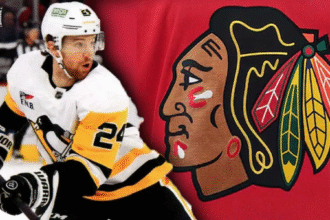As an NHL franchise, you never want to be known for having the worst contracts. Some argue that winning the Stanley Cup requires having some of the best deals. In this context, the Toronto Maple Leafs find themselves in the middle ground, neither known for outstanding contracts nor burdened by the worst ones.
Dom Luszczyszyn of The Athletic, in a pair of articles, examined the best and worst NHL contracts based on their value. He noted that the Maple Leafs neither excelled in signing amazing deals nor fell into the trap of signing the worst. His analysis focused on future value, disregarding past performance, contract clauses, and bonus structures. Players on LTIR were also excluded from the assessment.
Who Ranked on the List of Good and Bad?
Gustav Forsling holds the top spot for the best contract in the NHL. Earning $5.8 million, the Florida Panthers’ defenseman has a projected value of $11.4 million, making his deal the league’s gold standard according to the model used. The writer notes, “On a team full of great deals, Forsling’s looks the best and should be for the foreseeable future.” Jack Hughes of New Jersey and Miro Heiskanen of Dallas rank second and third, respectively.
On the flip side, Jonathan Huberdeau of the Calgary Flames has the worst contract, with a $10.5 million cap hit but a projected actual value of only $4.9 million. The article states, “Jonathan Huberdeau has the worst contract in hockey. You know it. I know it. He knows it. He’s making franchise forward money for seven more seasons despite scoring like a second-liner in back-to-back seasons.” The recently-signed Chandler Stephenson of the Seattle Kraken and Tom Wilson of the Washington Capitals rank second and third for worst contracts.
Toronto Maple Leafs Absent From Both Lists
Luszczyszyn published his Top 10 lists for both the best and worst contracts in the NHL, and no player from the Maple Leafs made either list. Despite having a core of highly paid players, Auston Matthews, William Nylander, and even John Tavares were not mentioned. While Luszczyszyn’s model isn’t the definitive authority on good and bad deals in hockey, this is a positive indication that the Leafs are, for the most part, getting good value out of their contracts.
It’s not ideal that Tavares makes $11 million per season, nor is it great that Ryan Reaves is signed for $1.35 million for two more seasons. Chris Tanev’s $4.5 million contract might be concerning given his age, but it wasn’t flagged as a bad deal either.
The Leafs have the flexibility to potentially move one of these contracts, and they aren’t significantly hindered by any of their deals, aside from the no-move clauses that some players have.
What’s The Bad News?
The downside for the Leafs is that they lack any super-value contracts. Unlike the Edmonton Oilers, who have Darnell Nurse ranking among the worst but also Zach Hyman ranking among the best, or Dallas, with Miro Heiskanen listed as great value and Tyler Seguin not so much, the Leafs don’t have contracts that are considered outstandingly advantageous.
Teams that have recently contended for the Stanley Cup often share a common trait: team-friendly contracts where production vastly outweighs cost. Florida has Forsling and Matthew Tkachuk, the New York Rangers have Adam Fox, and Colorado has Nathan MacKinnon. While the Leafs avoid being grouped with teams that have terrible contracts, they also lack deals that give them a distinct financial advantage.
However, there is a silver lining. The Vegas Golden Knights didn’t have anyone on either list and still won the Cup in 2022-23.





